UK’s Irish border remains a Brexit hurdle: EU sources
European officials have emphasized any transition agreement on Britain’s exit from the European Union is contingent upon finding a solution to the Irish border as part of a wider Brexit deal with the EU.
Senior UK and EU officials are due to meet this weekend in Brussels, ahead of an EU27 Brexit summit on Friday, where many stress the best the UK can get is a political text, not a legally binding treaty giving cast-iron security for companies across Europe, as the issue of Ireland’s border remains unsolved.
EU negotiators “will make it crystal clear that this agreement on transition is only a political agreement”, a senior source familiar with the talks told the Guardian.
“The whole agreement on the withdrawal will be contingent on a solution on [Northern] Ireland,” the source said. “And it is politically unthinkable that we would wrap up everything and that you wouldn’t have a solution on the Irish border. The Irish would never accept it, but also the rest of the union will not accept it, because it would be toying with the integrity of the single market.”
A second diplomat said he was “cautiously optimistic” that EU leaders would sign off on the transition, but warned the deal would be shaky and could unravel in the autumn without agreement on Ireland and the rest of the UK divorce treaty. “You could agree on transition parts, but it is still not the withdrawal agreement.”
The President of the European Council, Donald Tusk, said last week that London could not assume negotiations would move on to other issues without solving the issue.
"If in London someone assumes that the negotiations will deal with other issues first before moving to the Irish issue, my response would be 'Ireland First'," Tusk said.
Northern Ireland debacle
Northern Ireland will be the only part of the UK to share a land border with an EU member state after the UK leaves the bloc.
London wants to withdraw from the EU customs union — within which goods can move freely — but has said it will not reimpose border posts, which many have said might upset the last 20 years of peace in Northern Ireland.
A hard border would make passport and customs controls mandatory, hampering business ties between the Republic of Ireland and Northern Ireland.
The EU is concerned that the adoption by Northern Ireland of different regulations on issues like food safety, environmental health and workers' rights would make border checks necessary, in order to prevent goods that do not meet EU standards from being brought into the bloc, potentially undercutting European rivals.
EU member states are also increasingly frustrated with Britain’s reluctance to compromise on the Irish border. Radical elements in Prime Minister Theresa May's conservative coalition reject any outcome that sees Northern Ireland treated differently from the rest of the UK.
Radical elements in May’s conservative coalition reject any outcome that sees Northern Ireland treated differently from the rest of the UK.
VIDEO | 85% of Yemeni displaced people face daily hunger crisis
US House passes bill targeting charities and pro-Palestine groups
VIDEO | Supporting Gaza genocide
Hezbollah attacks Israeli forces after Lebanese homes blown up
World leaders, states hail ICC arrest warrants for Netanyahu, Gallant
MP: US accountable for possible Israeli 'foolishness' to attack Iraq
VIDEO | Israeli policies strangle Palestinian agriculture, economy
Iran's president offers condolences to Pakistan over terrorist attack


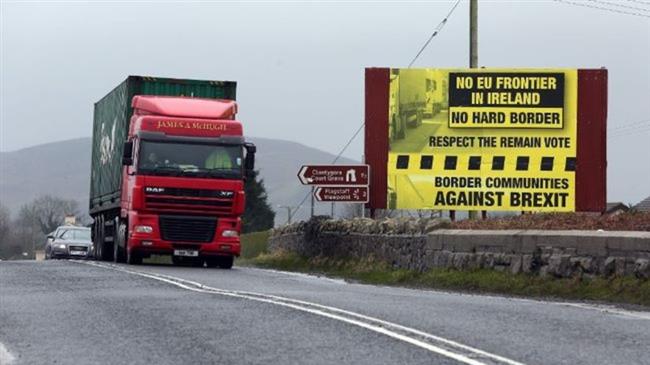
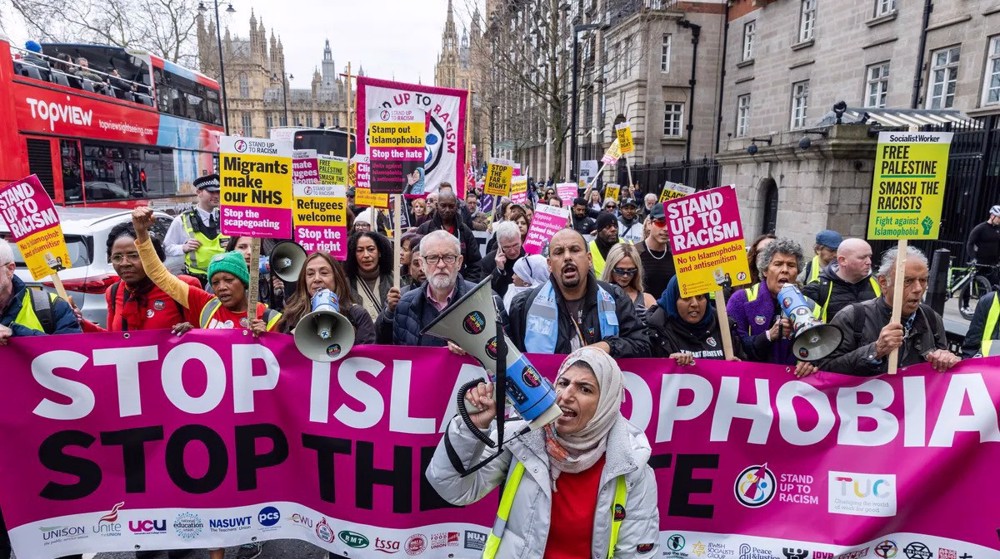
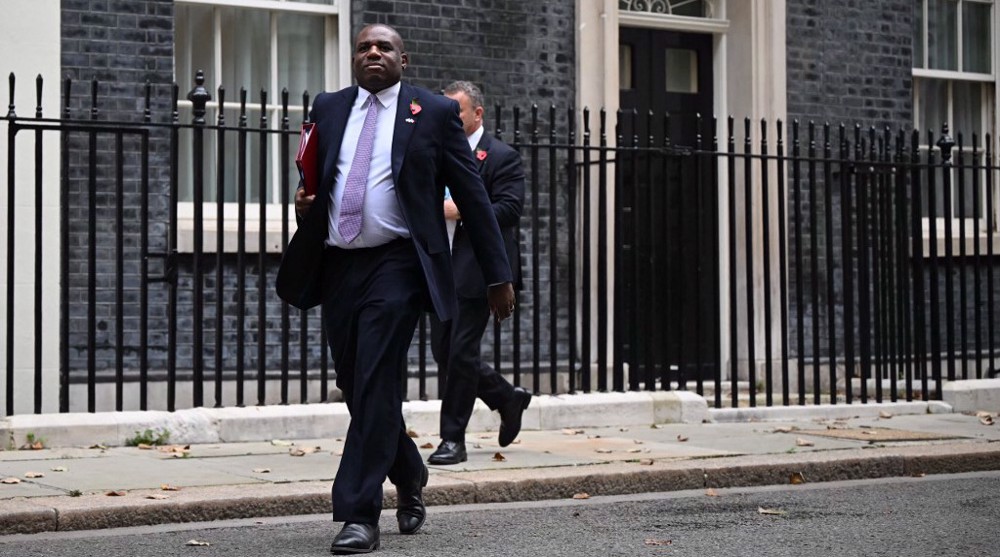
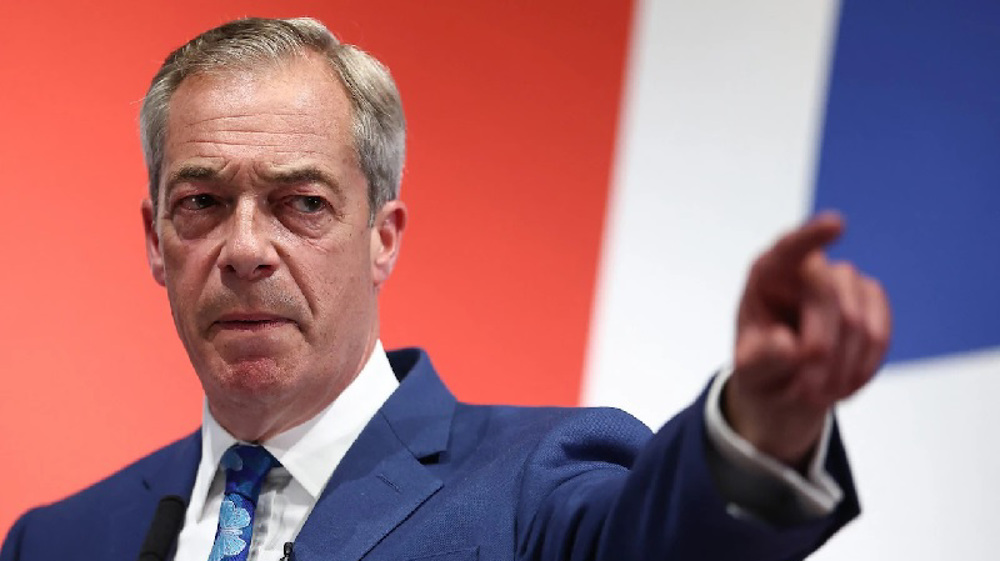



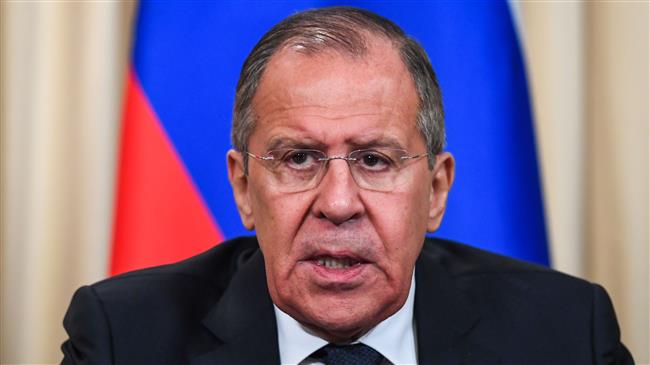
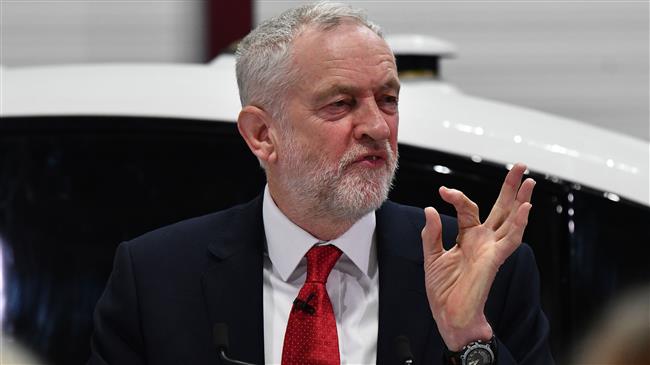
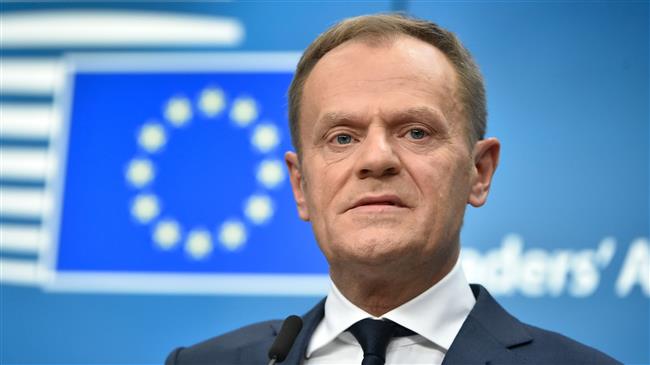

 This makes it easy to access the Press TV website
This makes it easy to access the Press TV website